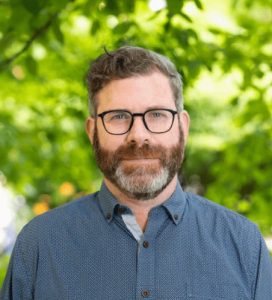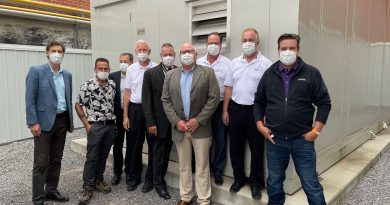Environmental Defence wants Ward 5 to support solar
By Jake Davies - West Carleton Online
WEST CARLETON – With the proliferation of solar, battery storage and potentially wind power projects earmarked for Ward 5, Environmental Defence, a non-profit, non-partisan lobby organization, hopes West Carleton residents will embrace the efforts to stabilize Ontario’s energy grid through renewable power.
In recent history, the South March Battery Energy Storage System (BESS) received municipal support earlier this spring; a 400-acre solar project earmarked for Dunrobin was announced last month; and a smaller solar project was recently announced for the Carp Airport.
Galetta has had a solar panel field for years and West Carleton Online recently wrote about a solar project situated near West Carleton Secondary School that has been around for roughly 10 years.
Last August, West Carleton-March Ward Coun. Clarke Kelly told the media his residents are worried the community would become a target for these large-scale projects.

“My residents are now concerned that their beautiful rural countryside that they enjoy so much, and love is slowly turning into solar panels and battery containers all over the place,” Kelly said. “People now are starting to feel we have just become the dumping ground for these types of projects.”
Environmental Defence programs director Keith Brooks says the community should embrace the move to ‘green’ power production and storage.
“They should support solar in general, and this is a good project for Ottawa,” Brooks told West Carleton Online Wednesday (Sept. 24).
Environmental Defence has been lobbying for 40 years for governments to enact policies to protect Canadians’ health and the environment. It works with industry to build a clean, prosperous economy while also educating Canadians on how they can take meaningful action.
The non-partisan organization’s mission is to defend the environment without advancing the goals of any specific political party.
“We’re active on a number of issues in Canada,” Brooks said.
Brooks was born in the suburbs just outside Toronto, but his passion for the environment was born in a canoe on the rivers and lakes of Northern Ontario. Brooks pursued a Bachelor of Environmental Sciences from the University of Guelph and then worked for a number of years in the environmental consulting field, before enrolling at York University where he earned a Master of Environmental Studies. The move from scientist and consultant to advocate was provoked by the recognition that more science cannot solve the environmental challenge on its own.
“Our challenge lies not in knowing what must be done, but in doing it,” he said. “We can not choose between the environment and the economy. We can and must have both.”
It is this outlook which ultimately led Keith to his current role as the programs director at Environmental Defence.
Brooks says the Doug Ford government has been slow to act on playing a role in stabilizing the province’s electricity grid through the use of renewable, low-impact systems.
“They did nothing for a long time except nuclear,” Brooks said. “They commissioned some new gas plants. Some BESS. We got engaged at that point. We encouraged municipalities to be against gas plants and for BESS generally, provided they are sited in the appropriate area. We need more renewable energy. Clean electricity when we want it.”
For Brooks, that includes BESS, wind and solar.
He doesn’t see Kelly’s ‘dumping grounds’ comments as applicable.
“The Galetta solar project – my guess is the neighbours are okay with it,” he said. “I don’t see how the region would become a dumping ground. They’re not dumps. They’re building something positive. They’re not built on prime agricultural land. This is marginal land. This is the lesson that was learned from the Green Energy Act. Nothing was ever forced on anyone ever. The municipality can say no.”
Brooks points out most projects come with a community benefit fund, such as the South March BESS and the proposed Dunrobin Solar Project.
“They bring tax money, clean energy,” Brooks said. “It makes sense if there’s any impact on you, there should be a direct benefit to you. They have to be a good neighbour. I would encourage residents to ask tough questions.”
Brooks says the proponents of these projects have to be good communicators as well.
“Unfortunately, there’s a lot of misinformation out there,” he said. “There are people organizing against these projects. There are people concerned about these things going up in people’s backyards. I think proponents have to do a better job of communicating with the public.”
Brooks says other BESS projects around the community have very little impact in the areas they are located in.
“It is the most innocuous way to generate power in the world,” he said. “Would you prefer a gas plant? The province has not done a good job of talking to Ontarians and municipalities. We do need energy, and I think it should be renewable.”
Brooks says that is the role behind Environmental Defence.
“We want to see more renewable energy in Ontario,” he said. “Bids are going in to the Independent Electricity System Operator (IESO). It is our hope more of these projects get municipal support. That they come to terms with their communities in the form of community grants. We want to see less gas-powered projects going forward. We want Ontario to get in the game of renewable energy.”
You can find out more about Environmental Defence at their website here.












